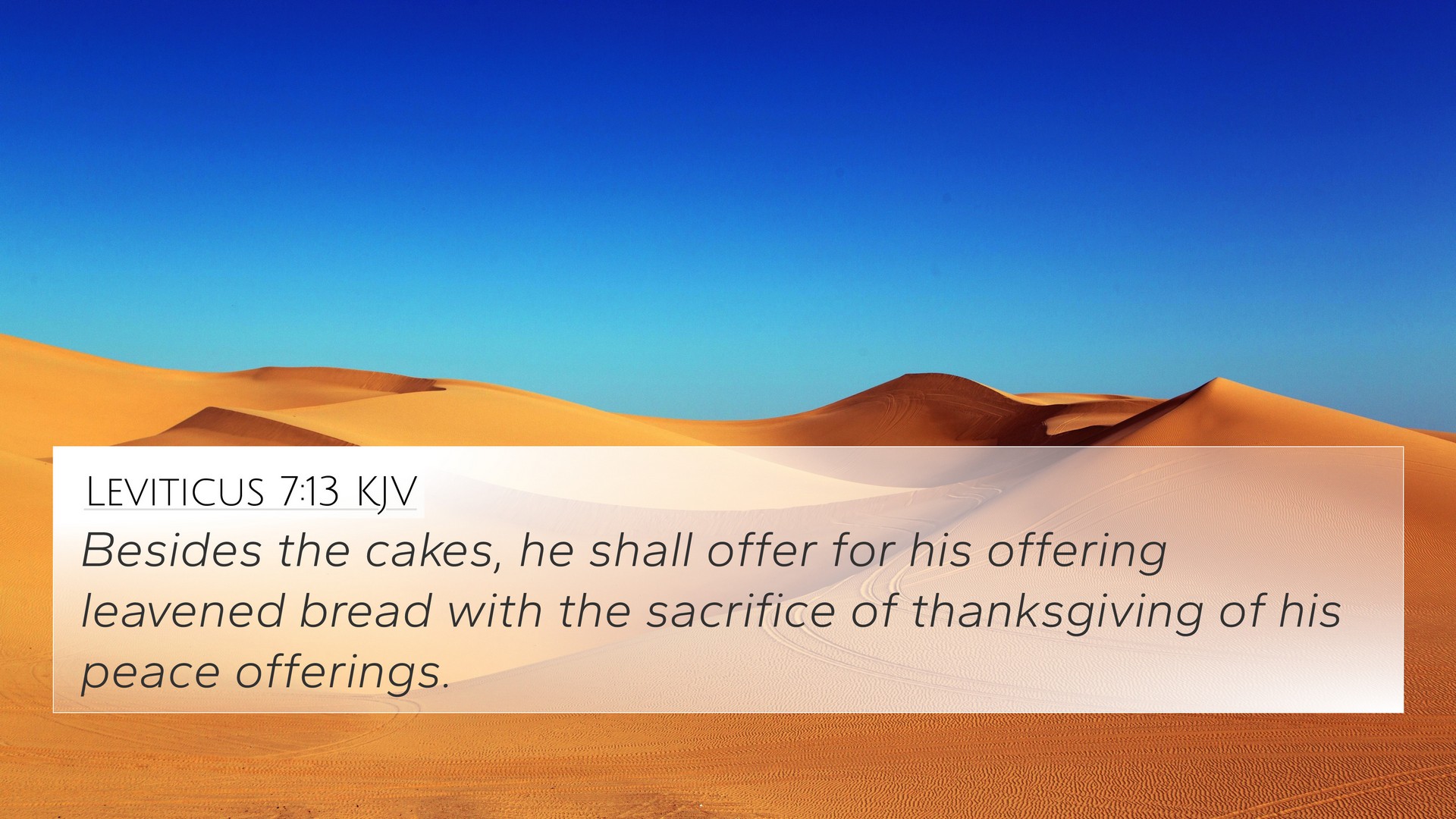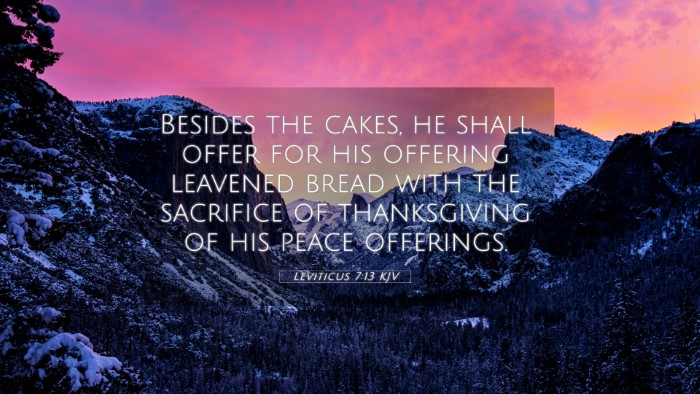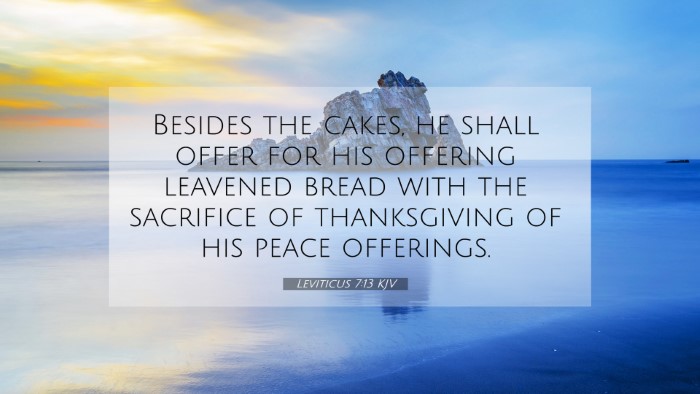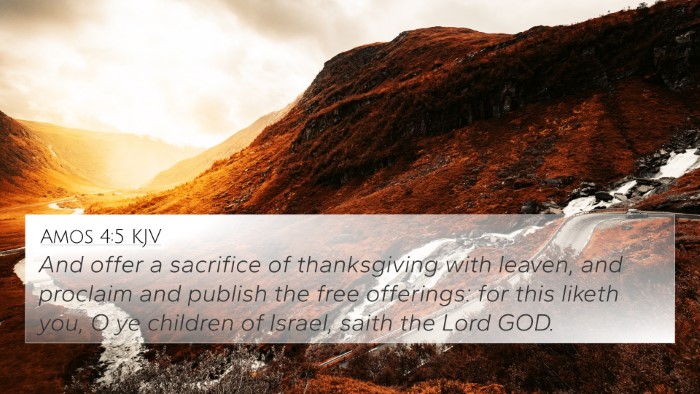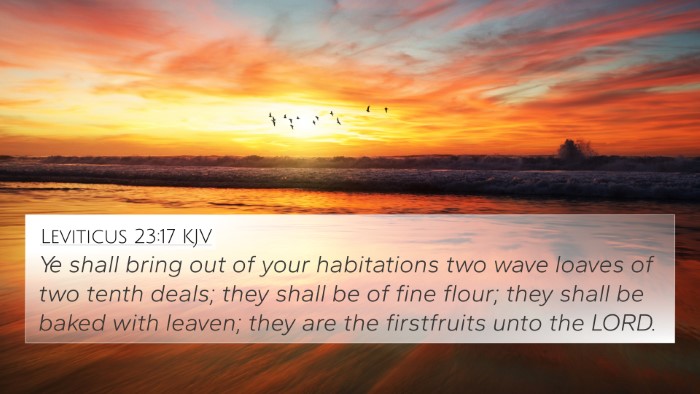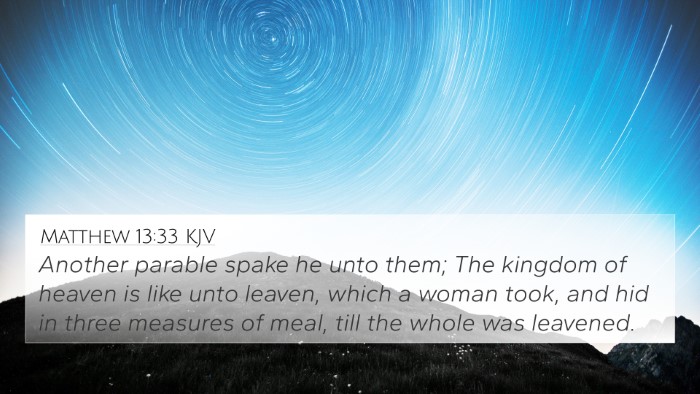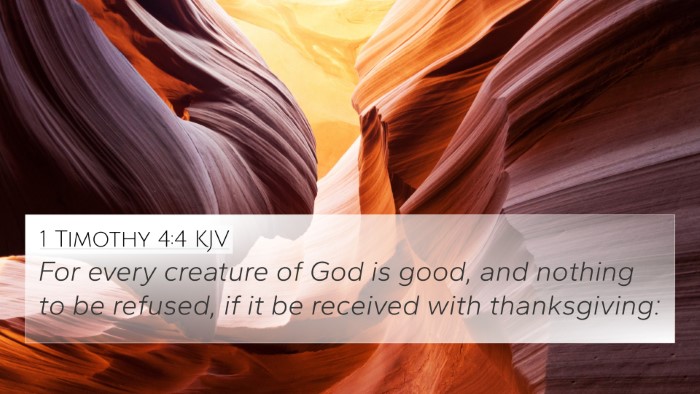Understanding Leviticus 7:13
The verse Leviticus 7:13 states: "With the sacrifice of his peace offerings for thanksgiving he shall bring his offering with cakes of unleavened bread." This verse is situated in the context of the laws regarding offerings and sacrifices, particularly highlighting the specific requirements for peace offerings made in gratitude to God.
Overview of Leviticus 7:13
This verse emphasizes the importance of thanksgiving in the context of offerings, indicating that those who offer peace offerings must also include unleavened bread. The peace offering, a voluntary act of worship, reflects a desire for communion with God and a recognition of His blessings.
Commentary Insights
Insights from prominent commentaries bring deeper understanding:
-
Matthew Henry:
Henry notes that the peace offering is an expression of gratitude and fellowship. He stresses that the cakes of unleavened bread symbolize purity and the exclusiveness of the offering for God’s acceptance, enhancing the notion of approaching God with sincerity and gratitude.
-
Albert Barnes:
Barnes emphasizes that the accompanying unleavened bread serves as a crucial part of the peace offering. He connects this to the overall idea that our offerings to God should be accompanied by sincerity and thankfulness, drawing a parallel to the sacrifices that acknowledge God's presence and mercy.
-
Adam Clarke:
Clarke points out that unleavened bread is a reminder of the Israelites’ quick departure from Egypt. He highlights that sacrifices, especially those made in thanksgiving, should reflect the worshipper's heartfelt gratitude, not merely be ritualistic acts.
Thematic Connections
Leviticus 7:13 provides thematic connections to various aspects of biblical teachings:
-
Thanksgiving in Worship:
This verse expresses the necessity of gratitude when approaching God. It parallels with Psalm 100:4, which invites worshippers to enter God's presence with thanksgiving.
-
The Sacrifice of Peace Offerings:
Similar to the peace offerings described in Leviticus 3:1-5, which detail how these offerings symbolize reconciliation with God and communal fellowship.
-
Purity in Offerings:
The concept of purity in offerings relates to 1 Peter 2:5, where believers are likened to living stones offering spiritual sacrifices acceptable to God.
Cross-References for Leviticus 7:13
When studying Leviticus 7:13, several related passages can enrich understanding:
- Leviticus 3:1-5 - Discusses peace offerings.
- Leviticus 23:17 - Notes the offering of bread in relation to harvest celebrations.
- Psalm 50:14 - Calls for thank offerings to God.
- Psalm 107:22 - Encourages the offering of thanksgiving sacrifices.
- Matthew 5:23-24 - Highlights the importance of reconciliation before offering gifts at the altar.
- 1 Corinthians 10:16 - Discusses the communion in the context of sharing bread and wine as a communal thanksgiving.
- Hebrews 13:15 - Encourages believers to offer a sacrifice of praise to God, aligning with the spirit of thanksgiving reflected in Leviticus 7:13.
Connections Between Bible Verses
This verse invites deeper engagement through the following connections:
-
Thematic Bible Verse Connections:
Relates to themes of gratitude, sacrifice, and community worship.
-
Inter-Biblical Dialogue:
Links the Old Testament sacrificial system with New Testament teachings on fellowship and gratitude in worship.
Conclusion
Leviticus 7:13 serves not only as a reminder of the specific rituals of ancient Israel but also as a profound reflection on the attitudes we should hold toward God—thankfulness, sincerity, and unity. By understanding this verse within its broader scriptural context and through the insights of respected biblical commentators, believers can gain a richer understanding of the significance of offerings and their spiritual implications.
